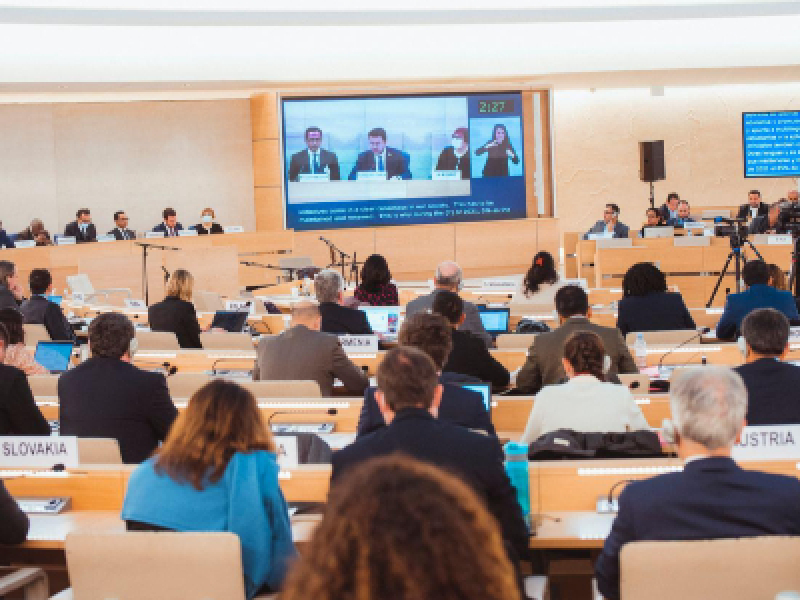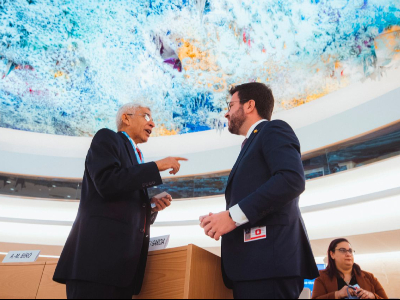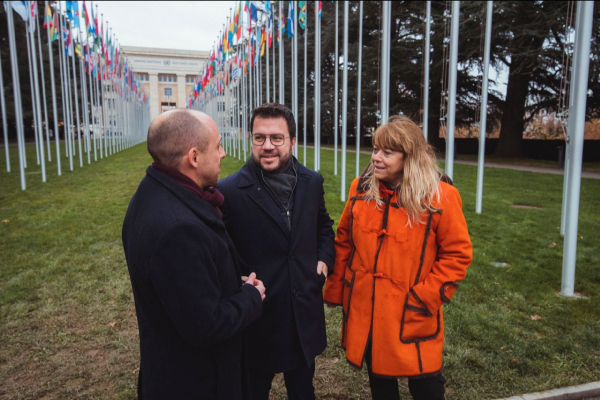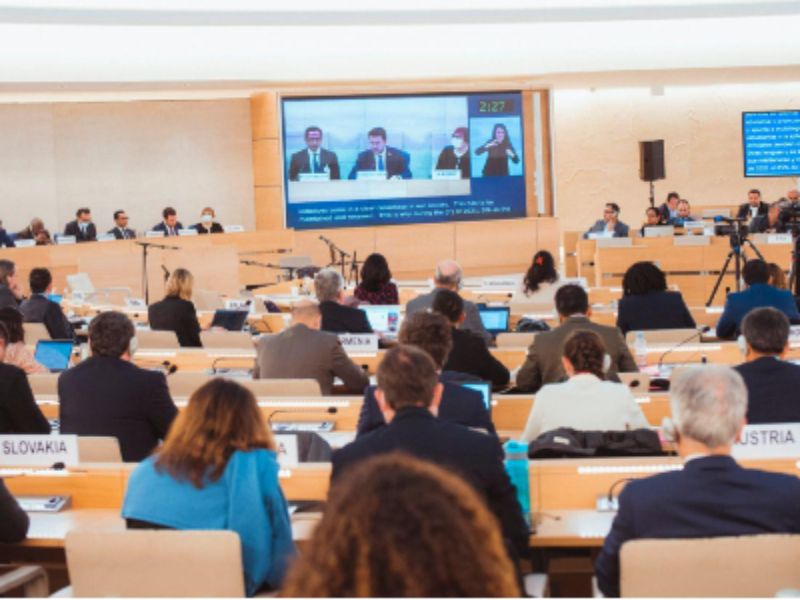- The head of the executive took part this morning at the 15th United Nations Forum on Minority Issues, in Geneva, to defend the Catalan language
- It is the first time that the Government of Catalonia participates in the program of official sessions of this body, which has been held since 2007

The president of the Generalitat, Pere Aragonès, spoke this morning, from Geneva, at the 15th United Nations Minorities Forum, with the intention of "sharing the concern for the future of the Catalan language and global linguistic diversity" and urge to "preserve linguistic diversity"and to "ensure that everyone can live fully and normally with their own language".
During the round table Review: Normative frameworks and the mainstreaming of the Declaration at the UN, the Chief Executive has insisted on the "progressive" substitution of the Catalan language for the Spanish" that is marked "in a conscientious process of political and economic recentralization and national and cultural assimilation".And he defended that Catalan, which has ten million speakers distributed in four different states, is not a languageminority, but "aminority language", because, "except Andorra", "neither Italy, neither France nor Spain have offered the Catalan language the recognition, protection and impetus that all the languages of the world deserve".
Given this fact, Aragonès has highlighted the language policies carried out by the Government of Catalonia, especially the National Pact for Language , Catalan. "In a globalized world, it is necessary to defend all languages based on the principle of linguistic subsidiarity as a way to preserve both the equal rights of all people and the linguistic diversity of all humanity",he noted.
The president gave the first part of his speech at the Forum in Catalan, presenting Catalonia as "a modern, advanced, prosperous, European nation open to the world", where the Catalan language plays "a fundamental role in ensure and promote the social cohesion of our country".
It should be noted that it is the first time that the Government of Catalonia has participated in the program of official sessions of this body, where this year the president has been invited by the special rapporteur on Minority Issues, Fernand de Varennes. He was accompanied by the Minister of Culture, Natàlia Garriga.
The example of the National Pact for Language

The head of the Executive stressed that "the defense of the linguistic rights of minority languages like Catalan and of stateless nations like Catalonia has made significant progress in much of the world", although, "unfortunately, not everywhere ". And for this reason, he pointed out that the instruments to achieve this need to adapt to the new times: "It is necessary to broaden and develop instruments in order to achieve that they become really efficient in a changing world that imposes new challenges every day".
At this point, the president has referred to some of the challenges that the National Pact for the Language is putting on the table and that he has assured that "they can serve as a turning point for the Universal Declaration that has brought us here" .
Firstly, he warned that "the legal minority of languages often results in a violation of the rights of speakers of subordinate languages". In Catalonia, for example, "making the language of the state compulsory learning", while Catalan is "optional knowledge", "implies a systemic erosion of the status of the minority language that violates our national rights".
Secondly, he has denounced the violation of rights which means that speakers of minority languages cannot access public services, health or justice, in their language, and has asked for a "recognition of certain obligations, such as at least by the administrations and public operators".

Lastly, Aragonès has pointed out "the risk of loss of the audiovisual space and of digital diglossia" at the moment when nations without a state "see how their audiovisual space is regulated by higher authorities that corner the minority language". "The audiovisual must be plural and include all languages", he concluded.
The Forum on Minorities is an organ created by the Human Rights Council in 2007 to provide a platform that promotes dialogue and cooperation on what affect national, religious and linguistic minorities. From the set of debates and dialogues that will be held in this plenary, the special rapporteur on Minority Issues will prepare a report for the United Nations Human Rights Council scheduled for March 2023.
1
Attached files



